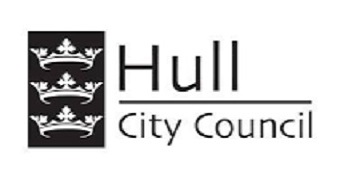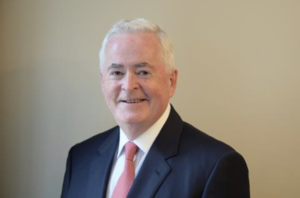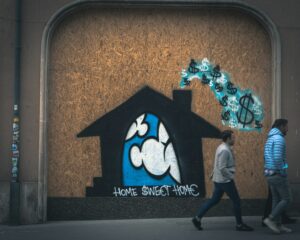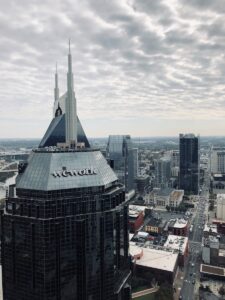Q & A with Tessy Britton: Building an urban Commons
 Tessy Britton has documented people-led initiatives across the country and is now helping to create civic ecosystems in the west Midlands and Lambeth. She talks to New Start about having her imagination captured by the idea of widescale creative civic participation.
Tessy Britton has documented people-led initiatives across the country and is now helping to create civic ecosystems in the west Midlands and Lambeth. She talks to New Start about having her imagination captured by the idea of widescale creative civic participation.
—————————————————————————————-
You started on this journey with Hand Made, which documented the emergent community culture. Where did the idea of people-led initiatives come from?
I put together the crowdsourced book Hand Made four years ago. It was a diverse mixture of projects but they really inspired me. I then did the Travelling Pantry and that was an incredible experience going around the country for six months meeting people and seeing if these innovative local ideas had a similar effect on other people. I’ve probably talked to between 4000 – 5000 people in the last four years and see how excited people are by the ideas. All of our work is about these amazing new ways that people are creating things – whether citizen projects or social initiatives. This is a new way of doing things and citizens are doing it outside of the existing participatory systems. Indeed, sometimes the system actually puts barriers in place of it. I’m totally in the grip of this idea and can see there’s something amazing happening.
From my own experience I’ve been through traditional routes of participating: I’ve chaired committees and done a lot of campaigning and charity and representation work. What I discovered is that each of these types of civic participation had serious limitations and I recognized that these emerging new projects were showing another route. That was very exciting. A lot of the other means of participation is about repair work but this new type of participation is about building and it’s a lot more creative.
You’ve been working with Lambeth council helping them put their co-operative council into action, through the Open Works project. Can civic participation be fostered by a local authority?
Lambeth council has put itself in a unique position to take a prototyping approach. The Open Works is so against mainstream thinking and to do that it takes visionary leadership and lots of grit. Councils are suffering from trying to reconfigure themselves. The day-to-day work has become quite tough, and every year the cuts go deeper. With Open Works we are trying to see if we can create a different model that will foster civic participation and co-building between the council and citizens.
‘If citizens are building structures for future sustainability
there’s no doubt the government has a role in that‘
Open Works is a shop on the high street in West Norwood in south-east London. We use a membership model and have around 300 members who join for free. We encourage them to start and participate in projects. We’ve set up a number of co-produced projects including a Trade School – where people teach and barter for lessons – and The Great Cook – where people bring ingredients and batch cook meals together. We’re reducing the barriers between people having an idea and making it happen and we’re changing a lot of the existing frameworks to do that. We’re seeing what happens if you give people space and stimulate them to think about building a new participatory ecosystem together – one that doesn’t currently exist.
What have you learned so far?
We’ve made a list of over 12 things we need to change in the current system to make this kind of participation become the norm. One of them is space. These kinds of projects don’t need meeting rooms or event spaces, but instead need more functional spaces like kitchens or gardens or workshops. So we need to think about how we make these spaces part of the common infrastructure. People still use the room rental model but there is such low occupation and that model means that all activity has to be funded. We are working with Dudley CVS on a project at the Wren’s Nest estate in Dudley called Open Hub where their community centre has only 6% occupancy. It’s really well resourced with an industrial kitchen, IT equipment, and every cupboard bulging with something they got funding for. If you take that room rental model away you can create fresh opportunities for more experimental work, for people with an idea to come forward and grow it. What we are doing is learning from citizen-led projects and using that learning to look with fresh eyes at what we have and how we can change systems to make interaction between councils and citizens better and more effective. The models we create need to be equally attractive to citizens and government – because sustainable futures need everybody.
 Is their evidence that these projects help tackle entrenched social issues?
Is their evidence that these projects help tackle entrenched social issues?
We are in process of refining what we do in order to understand it better. As well as direct outputs like new livelihoods or collaborative childcare, a lot of the effects are through social capital and the secondary effects of boosting that, from health improvements to employment to safety. Government spends a lot of money on those things. These projects are often disconnected to each other and fragile and not sustainable but they have many benefits. Men’s Sheds have been going long enough and shows empirically the health, skills, employment and cohesion benefits. The tendency is for government to say ‘That’s very nice – let’s get out of your way’. If citizens are building structures for future sustainability there’s no doubt the government has a role in that. If we can imagine a neighbourhood where its citizens are much more connected to each other, cooking together, saving money together, building infrastructures that make a neighbourhood more resilient, this is an urban commons that doesn’t currently exist outside professional or commercial systems. If we imagine a community like that, it’s one everyone would like to live in.
If we can imagine a neighbourhood where its citizens
are much more connected to each other,
it’s one everyone would like to live in.
It’s interesting to see who participates in these projects and how it breaks down systemic problems of inequality. We’re interested in finding out if a new system can create a more level playing field, to make it flatter so that everyone can participate and grow their ideas and networks. We treat each of our projects as mini-labs. We are convinced that you can’t design these types of long-term change processes in an office – you have to design through live development – with real people.
In Birmingham you and the team have set up a civic foundry that takes civic participation to a different level.
Yes. At Civic Foundry the team is encouraging and incubating civic enterprises for people wanting to do them as a full time job. It’s more professional and city-based. In the first phase we had a 10-week programme for idea research and development and we asked participants not to come with ideas first – but rather to do a lot of knowledge building and opportunity mapping and to start building teams. We started with 75 people and halfway through they had formed 30-35 teams made up of 60-70 people from outside the programme. We have had an amazing group of people – from all cultures and ages, from 18 – 72, It’s been both very energising and demanding for us to work with such a diverse group but it was fantastic.
Some of the ideas to come out of it so far include Black Country Make (pictured), a group of people reinventing their estate and hostel accommodation through digital manufacturing, and micro food producing venture Grow Dudley. We talked big at the beginning. We said we want to seed an ecosystem of civic initiatives, which sounds so grand, but actually we can see it happening. We are creating platforms that only come to life with people’s participation.
How do you hope to scale up?
It’s a unique time for us. We have incredible teams working on the projects. We have Open Works, Civic Foundry, The Common Room, Open Hub, Hub Engine – all models which are working under the umbrella of the Civic Systems Lab. We are building new civic participation infrastructure at a local and city level and they have the potential to work well in combination. We are seeing this happen in Birmingham and the Black Country. Scaling up this work isn’t just about replication but about density. It’s about combining things so that citizens at whatever stage in their lives have somewhere to go to participate and build in this way. The economics need to work well. Funding for projects like these needs to be different and we are developing our ideas around a Collective Impact Bond. If you fund the platform we believe you will get a lot of outcomes for your money and we need to understand how these outcomes convert to long-term economic viability. We keep experimenting, developing new frameworks and asking questions. People we speak to are as excited as us about this and I hope that many other people will get lot of encouragement from seeing what’s possible. Citizens are teaching government what they really want, and how to do it. Nothing could be more exciting than that.
- Civic Systems Lab is Joost Beunderman, Laura Billings, Tessy Britton, Matthew Green, Indy Johar and Immy Kaur and is part of Project Zero Zero – A collaborative design studio.














I’m chairing a partnership in East Salford called Irwell Valley Sustainable Communities (www.greenmyvalley.com). This is one of a series of Big Lottery projects across England looking for fresh approaches to sustainability. Our philosophy or theory of change is broadly in line with this. The community is amongst the most challenged in the UK yet only a mile or so from Manchester city centre. Millions have been spent on regeneration during the Blair years, much if it welcome and needed, but fundamentals have not shifted in line with the bricks and mortar. Happy to make contact and share approaches and experience.